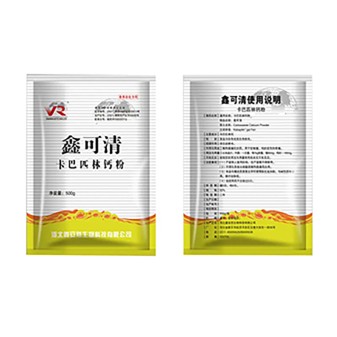- Afrikaans
- Albanian
- Amharic
- Arabic
- Armenian
- Azerbaijani
- Basque
- Belarusian
- Bengali
- Bosnian
- Bulgarian
- Catalan
- Cebuano
- Corsican
- Croatian
- Czech
- Danish
- Dutch
- English
- Esperanto
- Estonian
- Finnish
- French
- Frisian
- Galician
- Georgian
- German
- Greek
- Gujarati
- Haitian Creole
- hausa
- hawaiian
- Hebrew
- Hindi
- Miao
- Hungarian
- Icelandic
- igbo
- Indonesian
- irish
- Italian
- Japanese
- Javanese
- Kannada
- kazakh
- Khmer
- Rwandese
- Korean
- Kurdish
- Kyrgyz
- Lao
- Latin
- Latvian
- Lithuanian
- Luxembourgish
- Macedonian
- Malgashi
- Malay
- Malayalam
- Maltese
- Maori
- Marathi
- Mongolian
- Myanmar
- Nepali
- Norwegian
- Norwegian
- Occitan
- Pashto
- Persian
- Polish
- Portuguese
- Punjabi
- Romanian
- Russian
- Samoan
- Scottish Gaelic
- Serbian
- Sesotho
- Shona
- Sindhi
- Sinhala
- Slovak
- Slovenian
- Somali
- Spanish
- Sundanese
- Swahili
- Swedish
- Tagalog
- Tajik
- Tamil
- Tatar
- Telugu
- Thai
- Turkish
- Turkmen
- Ukrainian
- Urdu
- Uighur
- Uzbek
- Vietnamese
- Welsh
- Bantu
- Yiddish
- Yoruba
- Zulu
Lis . 22, 2024 16:00 Back to list
what can kill tapeworms in humans
Understanding What Can Kill Tapeworms in Humans
Tapeworms are parasitic organisms that can inhabit the intestines of various mammals, including humans. While they often do not cause immediate health issues, a significant infestation can lead to various symptoms and complications. Understanding how to eradicate these parasites is crucial for maintaining good health and well-being.
Introduction to Tapeworms
Tapeworms belong to the class Cestoda and can grow to impressive lengths within their hosts. They primarily enter the human body through the consumption of undercooked meat or contaminated water, and can also be transmitted through poor hygiene practices. Common types of tapeworms that infect humans include the beef tapeworm (Taenia saginata), the pork tapeworm (Taenia solium), and the fish tapeworm (Diphyllobothrium latum).
Symptoms of Tapeworm Infection
Many people with tapeworm infestations may not experience noticeable symptoms. However, some may suffer from abdominal pain, nausea, diarrhea, unexplained weight loss, and increased appetite. In severe cases, the tapeworm can cause blockages in the intestines or lead to malnutrition due to nutrient absorption issues.
Treatment for Tapeworm Infection
The primary method of eliminating tapeworm infections in humans is through antiparasitic medications. Two of the most commonly prescribed drugs are
1. Praziquantel This is often the drug of choice for treating tapeworm infections. It works by causing paralysis in the tapeworm, which then detaches from the intestinal walls and is eventually expelled through bowel movements.
what can kill tapeworms in humans

2. Albendazole Another effective medication that disrupts the tapeworm's ability to absorb glucose, leading to its death. This medication is frequently used in cases of neurocysticercosis, where tapeworm larvae affect the brain.
Natural Remedies and Prevention
While antiparasitic drugs are the most effective treatment, some people may explore natural remedies. Ingredients such as pumpkin seeds, garlic, and papaya seeds have been suggested as potential natural treatments. Pumpkin seeds, for example, are believed to contain compounds that paralyze tapeworms, preventing them from anchoring to the intestinal walls.
However, it’s essential to note that natural remedies should not replace conventional medical treatment. They can be used as adjuncts to enhance the overall treatment or help in prevention but should be approached with caution.
Importance of Hygiene and Food Safety
Preventing tapeworm infections is far preferable to treating them. Good hygiene practices are vital in minimizing the risk of infection. Washing hands thoroughly before meals and after using the restroom is essential. Additionally, cooking meat to safe temperatures can effectively kill any potential tapeworm larvae and prevent transmission.
Travelers should also be cautious when consuming food and drinking water in regions known for higher occurrences of tapeworm infections. Drinking boiled or bottled water and avoiding raw or undercooked food can significantly reduce the risk.
Conclusion
In summary, tapeworms can pose a significant health threat if left untreated, but there are effective medications available to eliminate them. Praziquantel and albendazole are the primary treatments that can remove these parasites from the human body. Nevertheless, prevention through good hygiene practices and proper food safety measures remains the best strategy for avoiding tapeworm infections. By understanding how to combat and prevent these unwanted parasites, individuals can protect their health and ensure a better quality of life.
-
Guide to Oxytetracycline Injection
NewsMar.27,2025
-
Guide to Colistin Sulphate
NewsMar.27,2025
-
Gentamicin Sulfate: Uses, Price, And Key Information
NewsMar.27,2025
-
Enrofloxacin Injection: Uses, Price, And Supplier Information
NewsMar.27,2025
-
Dexamethasone Sodium Phosphate Injection: Uses, Price, And Key Information
NewsMar.27,2025
-
Albendazole Tablet: Uses, Dosage, Cost, And Key Information
NewsMar.27,2025













